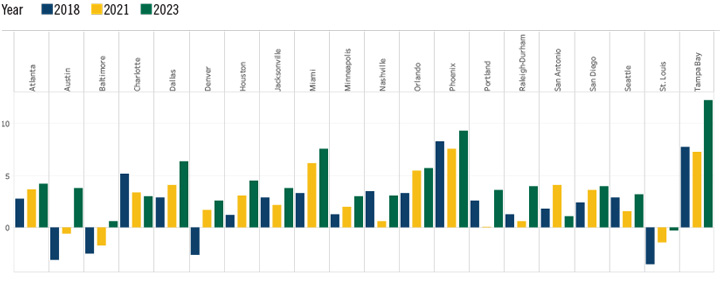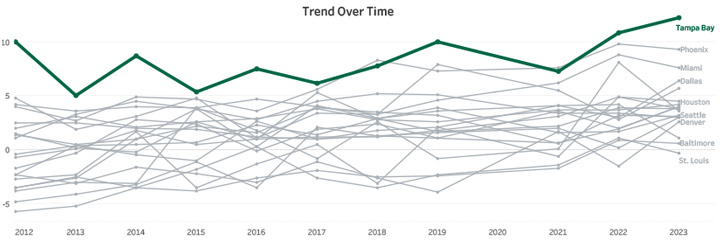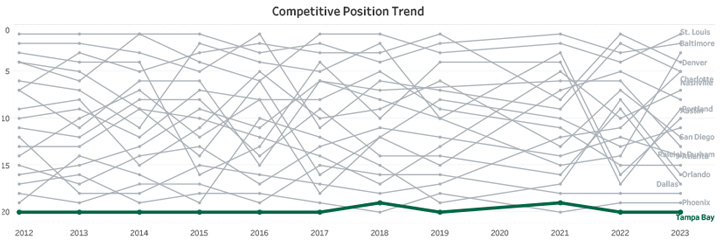2025 E-Insights Report
Black-White Labor Force Participation Rate Gap
- Minneapolis, Raleigh-Durham, and Baltimore consistently perform well with low Black-White labor force participation rate gaps, indicating better equity in these regions.
- Tampa Bay has a significant Black-white labor participation rate gap, which has been steadily increasing since 2013. Tampa Bay currently ranks last, reflecting one of the highest disparities in labor force participation rates among MSAs.

Trend Over Time

Competitive Position Trend

Measures the Black-white gap in percent of the population aged 16 years or older who
are either working or actively looking for work. It is calculated by subtracting the
labor force participation rate of Black Americans from that of white Americans in
the MSA.
Source: U.S. Census Bureau, American Community Survey, table S2301.